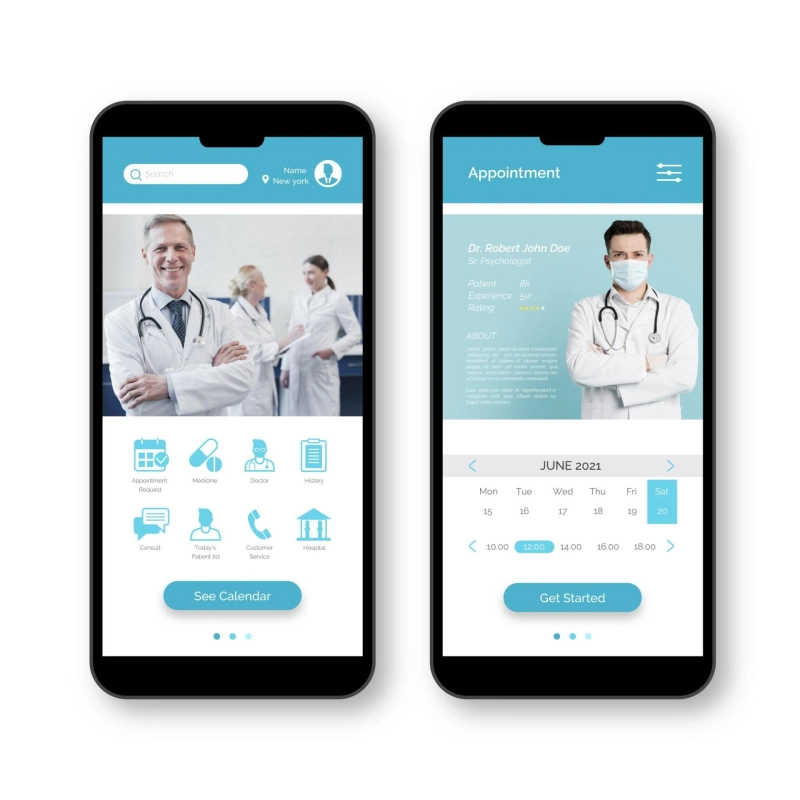Chronic diseases, such as diabetes, hypertension, asthma, and heart disease, require ongoing management and monitoring to maintain health and prevent complications. In recent years, patient healthcare apps have emerged as invaluable tools in supporting individuals with chronic conditions. These apps offer various features and functionalities designed to empower users to take control of their health and improve their overall well-being.
Understanding Chronic Disease Management
Managing chronic diseases involves a multifaceted approach that encompasses various aspects of an individual's life. It includes regular symptom monitoring, adherence to treatment plans, lifestyle modifications, and effective communication with healthcare providers. Successful management of chronic conditions not only requires medical interventions but also involves addressing emotional and social factors that may impact an individual's health.
The Role of Patient Healthcare Apps
Patient healthcare apps play a crucial role in facilitating chronic disease management by providing users with tools and resources to monitor their health, track their progress, and communicate with healthcare professionals. These apps offer a range of features tailored to meet the specific needs of individuals managing chronic conditions.
Symptom Tracking and Monitoring
One of the key features of patient healthcare apps is the ability to track and monitor symptoms related to chronic conditions. Users can input data such as blood glucose levels, blood pressure readings, and medication adherence to track their health status over time. This data can help users identify patterns, detect potential complications early, and make informed decisions about their care.
Medication Management
Patient healthcare apps often include features to help users manage their medications more effectively. These features may include medication reminders, dosage trackers, and refill alerts to ensure that users adhere to their prescribed treatment plans. By staying on top of their medications, users can minimize the risk of missed doses and medication errors.
Health Education and Resources
Many patient healthcare apps offer educational resources and tools to help users learn more about their condition and how to manage it effectively. These resources may include articles, videos, and interactive tools that provide information on topics such as diet, exercise, and stress management. By empowering users with knowledge and information, these apps enable individuals to make informed decisions about their health.
Remote Monitoring and Telehealth
With the advancement of technology, patient healthcare apps now offer remote monitoring capabilities and telehealth services. Users can remotely share their health data with healthcare providers and participate in virtual consultations from the comfort of their homes. This not only allows for more frequent check-ins but also reduces the need for in-person visits, especially for individuals with mobility or transportation challenges.
Personalized Care Plans
Some patient healthcare apps leverage artificial intelligence (AI) and machine learning algorithms to analyze user data and generate personalized care plans. These care plans take into account factors such as the user's medical history, lifestyle habits, and treatment preferences to provide tailored recommendations for managing their condition. By personalizing care plans, these apps help users take a more proactive approach to their health.
Secure Communication
Patient healthcare apps provide a secure platform for communication between users and healthcare providers. Users can securely message their healthcare team, ask questions, request medication refills, and share updates about their health status. This seamless communication channel fosters collaboration and ensures that users receive timely support and guidance from their healthcare providers.
In conclusion, patient healthcare apps have transformed the landscape of chronic disease management by empowering individuals to play an active role in their health and well-being. By offering features such as symptom tracking, medication management, health education, and telehealth services, these apps provide users with the tools and resources they need to effectively manage their conditions and improve their quality of life.


